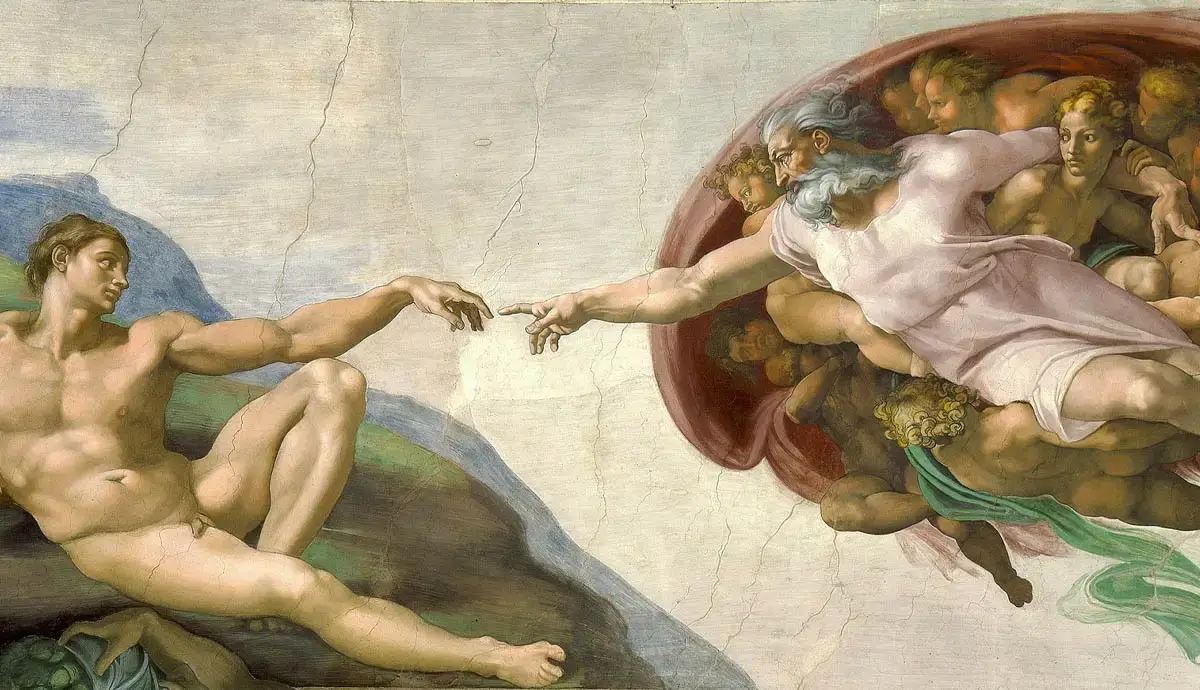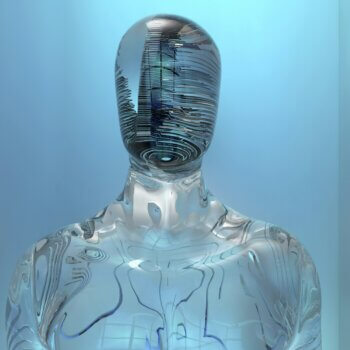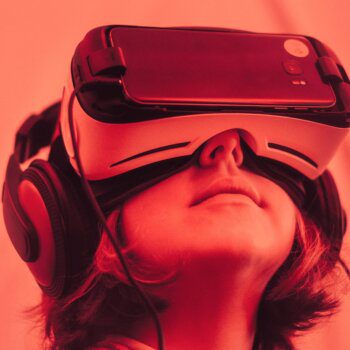Key Takeaways:
- There is perhaps no better time than now to address the role of faith in our society.
- Any hypothesis that wishes to be accepted as fact must have ways to be tested and falsified.
- When astronomy, medicine, and evolutionary biology have provided proof that contradicts the Bible, religious leaders integrate these findings into their sermons in new and clever ways. “
- The methods taken by science and religion to arrive at these truths, too, is starkly different.
- The appeal of religion resides in assurance.
- And it would be wrong to say that religion has never served a great purpose in human history: our ancestors needed an explanation for the world and motivation to keep going.
There is perhaps no better time than now to address the role of faith in our society. To do so is a controversial topic, as if religion were somehow above the realm of examination and questioning. And yet when events like the overturning of Roe v. Wade show how powerful an influence religion remains in our political system, it cannot be above examination. Anything that so deeply affects the lives of a country’s citizens cannot be above question. Current events provide evidence to disprove that science and religion can exist harmoniously in the world, as so many would like to believe.
God is not a fact, he is a hypothesis.
Any hypothesis that wishes to be accepted as fact must have ways to be tested and falsified. This burden of testing necessarily falls on the person who puts forth the hypothesis. This is how the scientific mind works: a conjecture is formed, evidence both for and against that conjecture is sought. Evidence in favor of the hypothesis is as highly-valued as evidence against it because both can further guide us to the truth. Even when a hypothesis is proven true time and time again, it can always be disproven at any moment with a single piece of new evidence. In fact, far from always wanting to confirm old theories, many scientists wish to disprove them since this would bring with it great attention and acclaim.
This is not the case with religion. Instead of having a conjecture which we then seek to prove, with religion we are indoctrinated from childhood into thinking that we already know the truth. It comes in the form of a book and a rosary and weekend meetings at the local church. What follows then is a life of confirmation bias where religious followers are receptive only to events which support their beliefs. They are consequently closed off to those that don’t.
An American poll taken in 2006 revealed that 64% of religious people would reject scientific findings that disproved their beliefs. 23% would consider changing their beliefs but did not guarantee it, despite clear evidence being presented. This is made especially clear in the case of evolution where the large majority of those who think evolution is false do so on religious grounds. They admittedly reject evolution not from a lack of evidence, but because it conflicts with their religious teachings.
Neither is this way of thinking harmless. From denying the effects of climate change to denying children medical attention on the grounds of religious belief, religion causes very real and often detrimental effects in the world. This extends to all religions, not just the Catholic and Evangelical opposition to abortion but also the passionate devotion to Islam that can lead to catastrophic violence. Let’s not forget that religious texts have also started wars, encouraged laws that discriminate against women and assert that they are their husband’s property, and have been used to justify acts as condemnable as slavery. Physical punishment remains legal in public schools across 19 states and in private schools of almost all states. This physical punishment for children is supported by the infamous (Proverbs 13:24), “Whoever spares the rod hates their children, but the one who loves their children is careful to discipline them.”

The tension between religion and science is felt continuously by both sides. Churches have tried increasingly to appeal to younger generations by claiming to be more open to science. When astronomy, medicine, and evolutionary biology have provided proof that contradicts the Bible, religious leaders integrate these findings into their sermons in new and clever ways. “Of course,” they say, “findings contradict that all humans came from Adam and Eve or that Jonah was able to survive inside a whale for several days before emerging unharmed. Those stories were never meant to be taken literally. They were meant to be allegories that teach us morals or that allow for a deeper understanding of God’s mind.” And yet for centuries these stories have been taken literally and are only presented as allegories when confronted by scientific claim.
Similarly, science also bends in some ways to religion since much scientific funding is provided by the government. A 2021 report reveals that members of Congress, for example, are 90% Christian. This is the same Congress that’s in charge of setting the budgets for the National Science Foundation and the National Institutes of Health. Scientists, then, must constantly assert that science does not lead to atheism and that, yes, the two are compatible. Yet statistics show that atheism increases dramatically when going from the American public to American scientists and it continues to increase the more elite and educated the scientists become. Members of the National Academy of Sciences are overwhelmingly atheist.
So why is it that science and religion are at such odds? It’s not that they can’t coexist within people since there are scientists who also claim to be religious. It’s not that science automatically dismisses a creator since we would have to accept God if we were given clear proof of his existence. The two are at odds because they aim to do the same thing: to present truths about our world.

The methods taken by science and religion to arrive at these truths, too, is starkly different. Science is involved with study and observation leading to one clear, concise answer that is not contradicted by evidence. Religion arrives at its truth with faith and revelation, contradicting itself repeatedly in its own texts and spurning evidence that may reveal new facets of our world. Some argue that the two may coexist because they are two different ways of knowing the world — one involved with how life came to be and the other involved with why life came to be. Religion is often said to concern itself with morals and meaning while science concerns itself with observations about the world. That is, science is the material and religion is the immaterial and therefor the two can compliment one another.
But religion often offers material truths, such as the rejection of evolution in favor of creationism, that resurrection is possible, that virgin births are possible, that there was a great flood that once engulfed the Earth. All of these are disproven by science. Neither has it been shown that prayer has any effect on the weak and infirm or in actually changing the course of one’s life (if something fortuitous happens the religious person will say their prayer was answered, if something unfortunate happens the religious person will say God willed it for reasons outside of human understanding). Gods are said to have supernatural influences on the world which manifest through spirits, healing, and other real world effects.
Any phenomena that affects the real world is necessarily subject to scientific observation.
If the truth of the Bible says Earth is 6,000 years old and the truth of science says the Earth is 4.5 billion years old, those two truths cannot coexist. Under scientific scrutiny, religious claims are not substantiated. They must, if we continue to treat this empirically and scientifically, be dismissed until satisfactory proof has been provided. By their methods of discerning truth and by the very truths that they arrive at, science and religion cannot both be right and are therefor incompatible.
As for the argument that God cannot be proven not to exist, the same can be said about Oden, Zeus, and the countless other Gods buried in human history. If someone can advocate God’s existence without evidence then so too can God be dismissed without evidence.

Morality and values can — and increasingly do — fall into the realm of science, especially as fields like neurobiology continue to mature. The discussion of morality and abortion can be supplemented with science on the risk of pregnancy, fetus development, and the psychological effects on parents and their children. So too has science allowed for improved methods of contraception in order to lower rates of abortion.
Still, it is sometimes asked of atheists what moral system keeps them from murdering or abusing others if they don’t adhere to Christianity. There is no need for me to believe in God for me to see that those acts are wrong. So too does there exist the dangerous mindset of religion which asserts that one can be privy to revelations and divine destinies wherein killing hundreds or thousands of people is justified due to divine rights and the lord’s plan. So we see, here too, that when it comes to morals and values religion is uncertain and often erroneous.
The appeal of religion resides in assurance. While science is laden with questions and unknowns, religion has all the answers about how best to lead our lives, why we are here, where we will go when we die. To many it is a place of comfort and solace. And it would be wrong to say that religion has never served a great purpose in human history: our ancestors needed an explanation for the world and motivation to keep going. Believing in Gods encouraged humanity to endure. So too did these beliefs allow humans to come together and build beautiful architecture, paintings, music, works of literature that should forever be cherished. Religious texts should be preserved for all time — not because they hold truths, but because they, like any other literary work, hold important insights into the nature of humans and our minds.
There was a time and a place for religion, but that time has now passed. Religion should be viewed as artifact, not actual fact.
“These blessings did not fall from the skies. These benefits did not drop from the outstretched hands of priests. They were not found in cathedrals or behind altars — neither were they searched for with holy candles. They were not discovered by the closed eyes of prayer, nor did they come in answer to superstitious supplication. They are the children of freedom, the gifts of reason, observation and experience — and for them all, man is indebted to man.” Robert Green Ingersoll






























